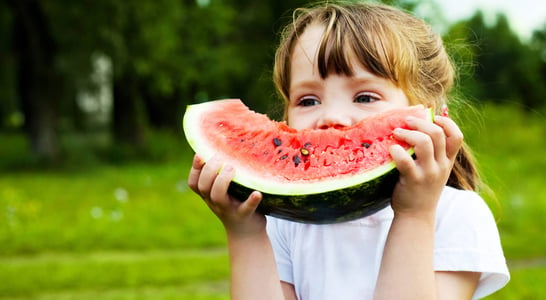
World Breastfeeding Week
Nurturing a bond like no other, this natural act of love fosters the health and well-being of both mother and child.
Even though it didn’t finally become legal to breastfeed in public in all 50 states until 2018, the practice of a mother breastfeeding her baby is a natural and healthy choice. Thankfully, the attitude toward breastfeeding shame is changing in today’s world as more and more women become educated about the health benefits for their babies and for themselves as well.
World Breastfeeding Week is here to raise awareness for and educate people in support of breastfeeding to promote healthier children, happier families and a better world!
History of World Breastfeeding Week
Of course, breastfeeding itself can be traced all the way throughout human history as it was the way mothers have been feeding their children for thousands of years! Compared to this, World Breastfeeding Week might seem like a new event, but it’s actually more than 30 years old. This event got its start in 1992 when it was founded by the World Alliance for Breastfeeding Action (WABA).
Since its beginnings, World Breastfeeding Week has grown in popularity and scope, having been celebrated in more than 120 countries all over the globe. In addition, the week comes under the support of the World Health Organization (WHO) and UNICEF (United Nations International Children’s Emergency Fund), as well as a wide range of partner organizations.
The purpose of World Breastfeeding Week is to promote and encourage the health benefits of exclusive breastfeeding for the first six months of life. In the United States, around 80% of newborns start out breastfeeding, but some of them are influenced by difficulties and the feeding tapers off. And Sweden has one of the highest rates of breastfeeding – at 98%!
Worldwide, less than 50% of babies are given exclusively breast milk until they are six months old, which is the reason that World Breastfeeding Week exists: to raise awareness for the array of benefits it provides to women and children.
Along a similar vein, those moms who breastfeed, and their partners or family members who support them, may also be interested in celebrating World Breast Pumping Day that takes place in late January.
How to Celebrate World Breastfeeding Week
Those who are interested in learning more or are considering ways that they can be in support of World Breastfeeding Week might want to look into some of these plans and activities for the event:
Learn About Benefits of Breastfeeding for Baby
Those who are pregnant and making a decision about breastfeeding, or seek to support someone who is, can learn about the myriad of ways that breastfeeding is healthier than formula feeding, both for the baby and for the mother. Check with a medical professional, do some online research and also check out some of these benefits to get started:
-
Breast milk is a substance that contains living stem cells, which go on to foster development in a baby’s brain, heart, bones and other organs.
-
The first “milk”, called colostrum, contains specific proteins that coat the baby’s intestinal tract to help her protect it from harmful bacteria and germs from the very beginning.
-
Breast milk contains antibodies and white blood cells from the mother that protect a baby from all sorts of short and long term diseases.
-
Breast milk that is consumed by a baby in the later parts of the day contains additional amounts of serotonin, a hormone that helps a baby to sleep. Genius!
Consider Breastfeeding Benefits for Mothers
Pregnant mothers who are interested in learning more about the personal benefits of breastfeeding for their own bodies should talk to their doctor and may also consider some of these facts:
- Breastfeeding can burn from 500-600 calories per day, which helps moms who just had a baby take off some of the additional weight they may have gained during pregnancy.
- When a woman is breastfeeding, her brain releases calming chemicals such as oxytocin and prolactin, which help her to reduce stress and anxiety while bonding with her baby.
- Mothers who breastfeed are at a lower risk of developing certain health conditions, including breast cancer, ovarian cancer, stroke, heart disease, diabetes and postpartum depression.
Support a Breastfeeding Mom
Families who choose to breastfeed their children often find it to be a convenient and healthy choice, but sometimes it is more difficult than expected. Friends and family members of a mom who is struggling to breastfeed can help by being encouraging and supportive, helping a new mom in whatever ways they can.
Offering to do things like holding the baby when mom is taking a shower, cutting her food so she can eat while she is feeding the baby, and looking after the older children so she can rest are all helpful activities. Plus, it might be useful to offer to help her find professional resources if she needs support with lactation issues such as sore nipples, low milk supply, plugged ducts or infection.
Get Involved with Breastfeeding Charities
A number of organizations are now active that help women and their partners to learn more about and make wise choices related to feeding their new babies. Check out some of these organizations, make a donation, volunteer, or even train to become a breastfeeding coach to support new moms in this endeavor:
- La Leche League International. This is probably the most well-known breastfeeding focused non-profit organization that has stations in at least 89 countries around the world. It focuses on advocacy, training and education for mothers, nurses, support workers and more.
- Breastfeeding Resource Center. Founded in Abington, Pennsylvania, this charitable organization is committed to offering expert clinical and educational services for those who are considering or learning to breastfeed.
- US Breastfeeding Committee (USBC). This is a national collaboration of more than 100 different non-profit organizations that support women and families in their breastfeeding endeavors.
- Nursing Mothers Counsel. More than 65 years old, this organization was founded in California to help mothers at a time when there was a lack of support and tons of misinformation about breastfeeding.
World Breastfeeding Week FAQs
Can you drink alcohol while breastfeeding?
The safest option for nursing mothers is not drinking alcohol. However, some doctors advise that a woman can have a drink if she waits two hours after a single drink before feeding her baby. Always consult a licensed medical professional if unsure.[1]
Is breastfeeding or formula better?
Health professionals and experts agree that breastfeeding is far healthier for the baby and the mom.[2]
Can you get pregnant while breastfeeding?
Yes. Although breastfeeding may act as a natural fertility preventer for some women, it isn’t 100% sure. Some women can get pregnant even before their period starts again. [3]
Is breastfeeding painful?
Some mothers do feel some pain and discomfort, especially when they are first learning how to breastfeed, but later it is not typically painful for most women. [4]
How to stop breastfeeding?
Nursing mothers usually use a process to wean their babies off of breast milk by giving milk supplements while dropping one feeding at a time. [5]
Also on ...
View all holidaysNational Mountain Climbing Day
Scaling heights, conquering challenges, the crisp air, and breathtaking vistas—a symphony of nature's grandeur unfolds in ascent.
National Coloring Book Day
Long gone are the days when coloring is just for kids. Get out a coloring book and colored pencils, and get lost in the creative, meditative exercise of coloring.
National Watermelon Day
Hydrating, sweet, and cold, watermelons taste like backyard barbecues and hot summer days. Dig into a slice, make a smoothie, or put together a fruit salad.
Hooray for Kids Day
Little explorers, full of curiosity, boundless energy, and a knack for turning everyday objects into extraordinary adventures and laughter.
We think you may also like...
International Vascular Birthmarks Awareness Day
Understand the origins of vascular birthmarks, and help get rid of any stigma and misunderstandings that have to do with these very common birthmarks.
National Birth Defects Awareness Month
Fostering empathy and understanding for those facing unique health challenges empowers communities to embrace diversity and advocate for inclusion.
Pertussis Awareness Day
Educating communities on the importance of vaccination to protect against a highly contagious respiratory disease.








